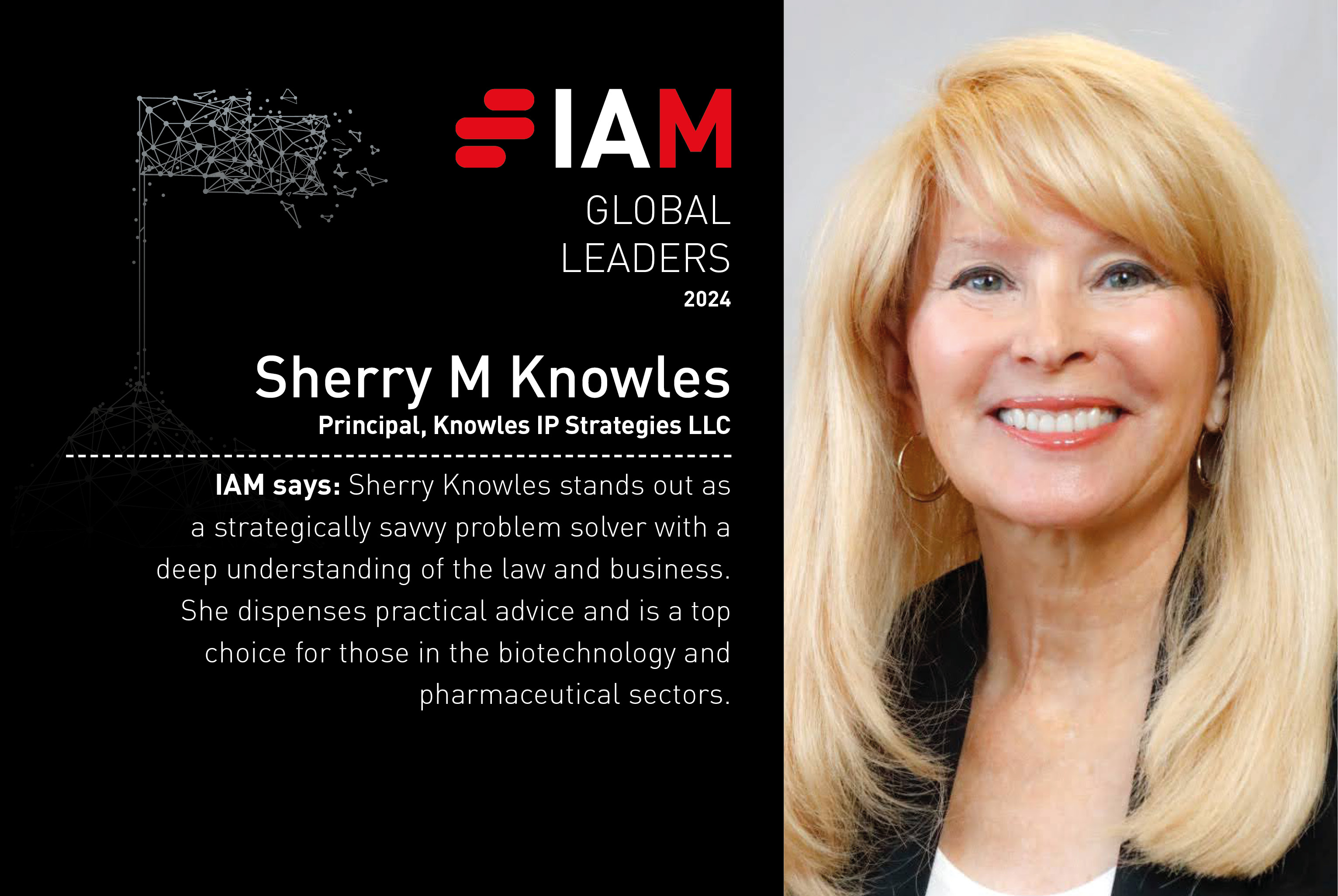Sherry Knowles
 What are the most critical characteristics that a patent litigator should possess?
What are the most critical characteristics that a patent litigator should possess?
Patent litigators have to be ready to work very hard with long hours! There is no substitute for great preparation. They must pore over all of the relevant documents, and they should surround themselves with a sharp team that is equally invested in the case. Careful selection of experienced witnesses who are real experts is also essential. Most of all, patent litigators need to show true creativity in how they create and present cases. This does not mean presenting frivolous arguments – it is the opposite. It means understanding all of the facts and the law and selecting the strongest arguments. If it is called for, it can be appropriate to advocate for changes or expansions of the law if well considered and deemed necessary.
How is the advent of the UPC and the unitary patent affecting global IP strategies?
So far, it has had little effect on our biopharma practice. Many biop. harma companies are adopting a ‘wait-and-see’ attitude They are opting out of the system for a while to see whether the UPC will be pro or anti-patent, as well as what kinds of legal analyses the courts will present. We are watching from the sidelines with great interest. We will enter the system if it proves to be fair and respectful of innovation, and values the purpose of patent protection. Companies need to be able to make well-settled decisions based on reasonable expectations of market protection over a long period of time. If the laws change or the UPC is hostile to innovation (eg, as we have seen at the UK Patent Court), I expect that biopharma companies will avoid the system for as long as possible. However, if the UPC decisions are more reflective of the German court system, for example, I anticipate that more patentees will opt in. Because of Brexit, the UPC’s life sciences division will be in the Italian city of Milan instead of the United Kingdom, which many professionals in our industry look forward to.
During your time at GlaxoSmithKline, you helped to organise the firm’s first patent group in China. What are the key differences when it comes to prosecution in China compared to the United States?
China has become a key country for biopharmaceutical patent protection. However, the legal framework that is applied during prosecution of biopharma applications in China has not yet reached the same standards that we see in Europe or the United States. Examiners in China still reject claims based on applications that do not include data as filed in the specification, even if the application clearly teaches a skilled reader how to make and use the invention, and the applicant is the first to disclose it. In both Europe and the United States, supporting data can be provided during prosecution. Also, damages for patent infringement have not yet reached the same standard as we see in Europe or the United States. Given that China is shifting from an ‘effective infringer’ to an innovative society, we hope that patent laws and the application of laws that support innovators will be enhanced. China has come a long way and is on the brink of becoming a major environment for innovators if the laws provide the appropriate support.
You are very active in IP matters in developing countries, and were an invited speaker at WIPO’s conference on IP and development, where such countries discussed how to address intellectual property. Can you tell us more about this work?
I think it is crucial to support innovation in developing countries and to advocate for laws that protect innovators. This can be a great way to increase employment and the quality of life for citizens. Youth in developing countries face many challenges these days due to weak economies, unemployment, barriers to education and healthcare problems. They need our help. That is why I founded The Malmar Knowles Family Foundation and its flagship initiative The Kectil Programme to mentor talented youth in developing countries in leadership, entrepreneurship, innovation and other areas. These youth are the future of the global economy and we must support them. So far, the programme has mentored over 6,000 young people in more than 100 countries. We hope that we are making a difference in their lives and giving them the tools to excel and the knowledge that we care about their futures.
Sherry Knowles
Principal
[email protected]
Sherry M Knowles is an IP attorney with more than 30 years of experience in global corporate and private practice. From 2006 to 2010, Ms Knowles was senior vice president and global chief patent counsel at GlaxoSmithKline. She is now principal of Knowles IP Strategies, providing counsel on all aspects of biopharmaceutical patent law, including prosecution, adversarial matters, licensing, opinions and policy. She has received numerous awards for her work in patent advocacy for innovators.